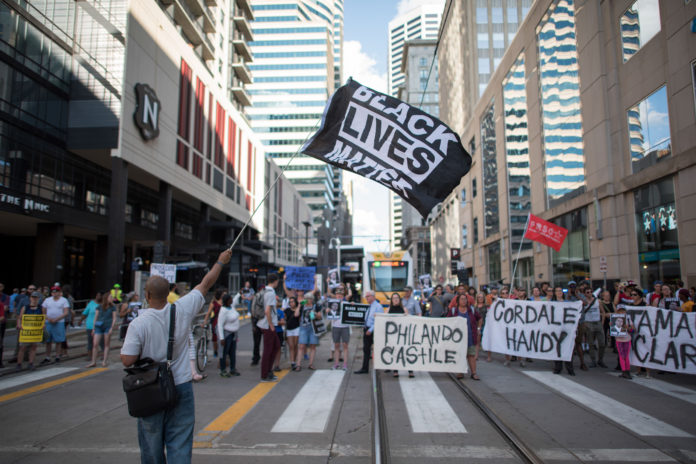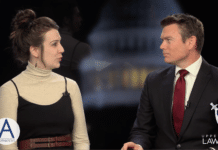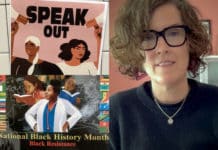A Minnesota high school social studies teacher recently explained how he teaches critical race theory in his classroom in an op-ed published by the Star Tribune.
Bill Boegeman, a social studies teacher at Forest Lake Area High School, claims in his opinion piece that he never teaches his white students that they are inherently racist but instead seeks to explain “how structures and systems work to produce the racial inequities that have existed throughout history and that continue to exist today.”
“I don’t teach my white students that they are perpetrators of racism any more than I teach my students of color that they need to feel like victims,” Boegeman writes.
He goes on to explain that he is simply “trying to help” his students understand why black people are “more likely to live in poverty, to struggle in school, and to be incarcerated than people who are white.”
He says that CRT can be “liberating” for people who are not racist, as well; it allows them to understand how they are part of a racist system.
“[Critical race theory] can help not-racist cops and judges understand how they can be part of a criminal justice system that disproportionately targets black people,” Boegeman claims. “It can help not-racist elected representatives and government officials understand how they can be part of a political system whose policies and legislation perpetuate racial inequities.”
CRT does not teach that all people are “complicit” in racism, according to Boegeman, but rather that there is something everyone can do as part of a “larger society” to put an end to these racist systems.
Boegeman says critical race theory was part of his graduate school training and informed his philosophy “in regard to the teaching of history,” but he has never thought of himself as as “a teacher explicitly teaching critical race theory.”
“That’s because to teach critical race theory is simply to teach history and the role that race has played in shaping how individuals and groups have experienced this country in the past and in the present,” he writes.
Boegeman then vows to continue teaching critical race theory in his social studies classroom and encourages others to do the same.
“Critical race theory is something that students should be learning in their social studies classrooms, and school districts should demonstrate both a commitment to equity and a backbone and stand by that,” he concludes. “Critical race theory provides students of all races with knowledge that is essential in understanding the legacy of racism that still lives and breathes in the U.S. today.”
In practice, however, there are countless examples of critical race theorists taking a more hostile tone toward white students and teachers. A Drake University professor, for instance, recently said in a seminar that all white people need to feel white guilt at some point, so they can then move past it; the younger white people experience this feeling, the better.
“We shouldn’t be worrying too much about making white kids feel bad — because they get so [many] false messages about their goodness that it’s actually kind of critically important” to make them feel bad, the professor said.
The same professor also noted that America needs to figure out “how to raise a different generation of white children.”
In Minnesota, superintendents have encouraged their staff to “examine the role that whiteness plays in our macro-system of white supremacy” and “recognize aspects of whiteness like fragility and defensiveness within yourself.”
More than 80 Minnesota teachers have signed a national pledge vowing to continue teaching CRT even if their state bans its use in the classroom.
This pledge came as many public schools across Minnesota were met with backlash from parents and community members who oppose critical race theory.
Lakeville, Rosemount-Eagan-Apple Valley, Elk River, and Rochester are just a few of the school districts that have dealt with strong opposition from their communities, students, and parents.
Meanwhile, Attorney General Keith Ellison recently claimed that the “fight over critical race theory is an invented, contrived, manufactured, fake controversy.”

















